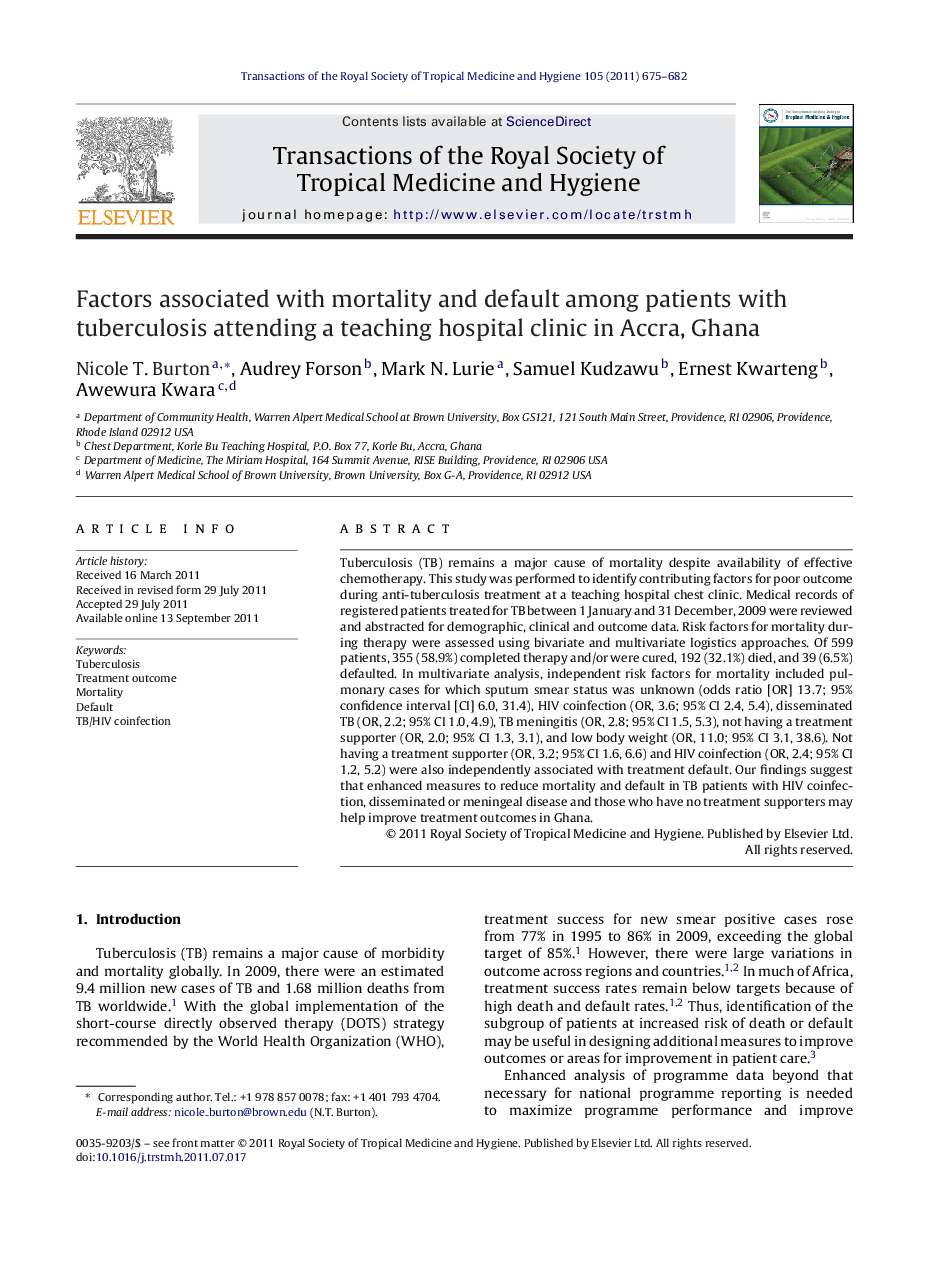| Article ID | Journal | Published Year | Pages | File Type |
|---|---|---|---|---|
| 3420397 | Transactions of the Royal Society of Tropical Medicine and Hygiene | 2011 | 8 Pages |
SummaryTuberculosis (TB) remains a major cause of mortality despite availability of effective chemotherapy. This study was performed to identify contributing factors for poor outcome during anti-tuberculosis treatment at a teaching hospital chest clinic. Medical records of registered patients treated for TB between 1 January and 31 December, 2009 were reviewed and abstracted for demographic, clinical and outcome data. Risk factors for mortality during therapy were assessed using bivariate and multivariate logistics approaches. Of 599 patients, 355 (58.9%) completed therapy and/or were cured, 192 (32.1%) died, and 39 (6.5%) defaulted. In multivariate analysis, independent risk factors for mortality included pulmonary cases for which sputum smear status was unknown (odds ratio [OR] 13.7; 95% confidence interval [CI] 6.0, 31.4), HIV coinfection (OR, 3.6; 95% CI 2.4, 5.4), disseminated TB (OR, 2.2; 95% CI 1.0, 4.9), TB meningitis (OR, 2.8; 95% CI 1.5, 5.3), not having a treatment supporter (OR, 2.0; 95% CI 1.3, 3.1), and low body weight (OR, 11.0; 95% CI 3.1, 38.6). Not having a treatment supporter (OR, 3.2; 95% CI 1.6, 6.6) and HIV coinfection (OR, 2.4; 95% CI 1.2, 5.2) were also independently associated with treatment default. Our findings suggest that enhanced measures to reduce mortality and default in TB patients with HIV coinfection, disseminated or meningeal disease and those who have no treatment supporters may help improve treatment outcomes in Ghana.
